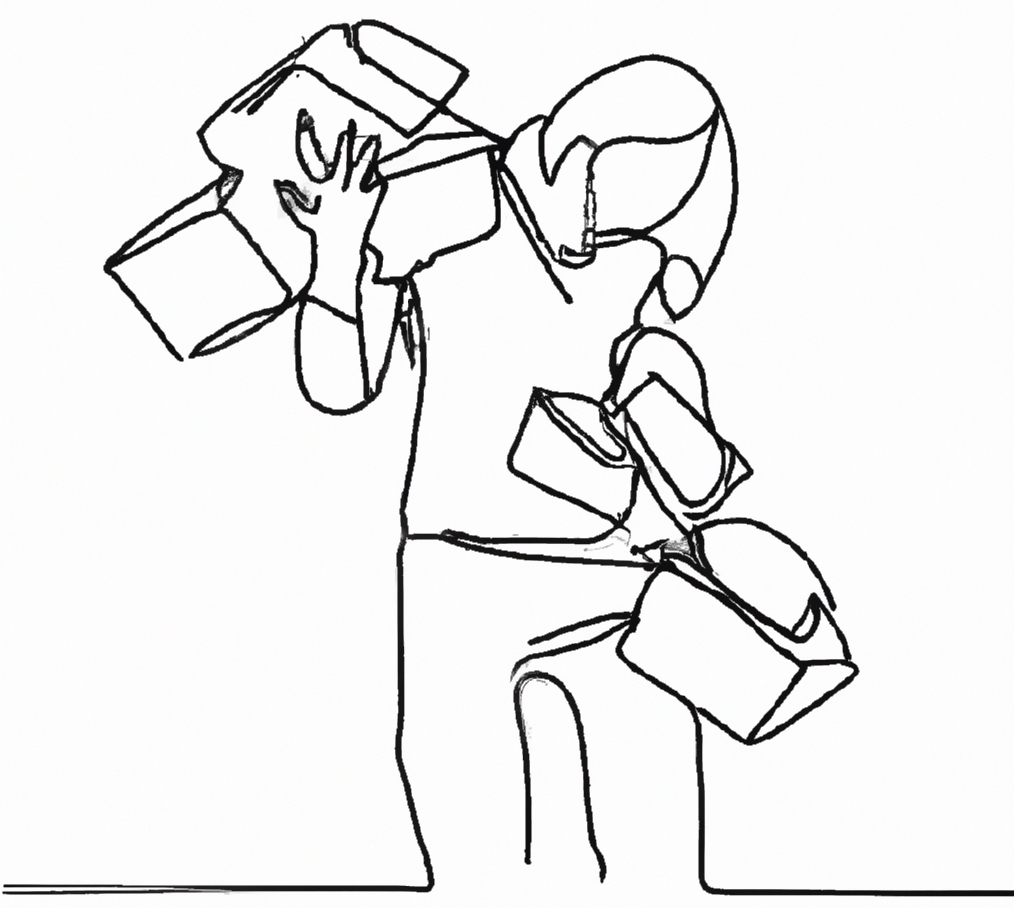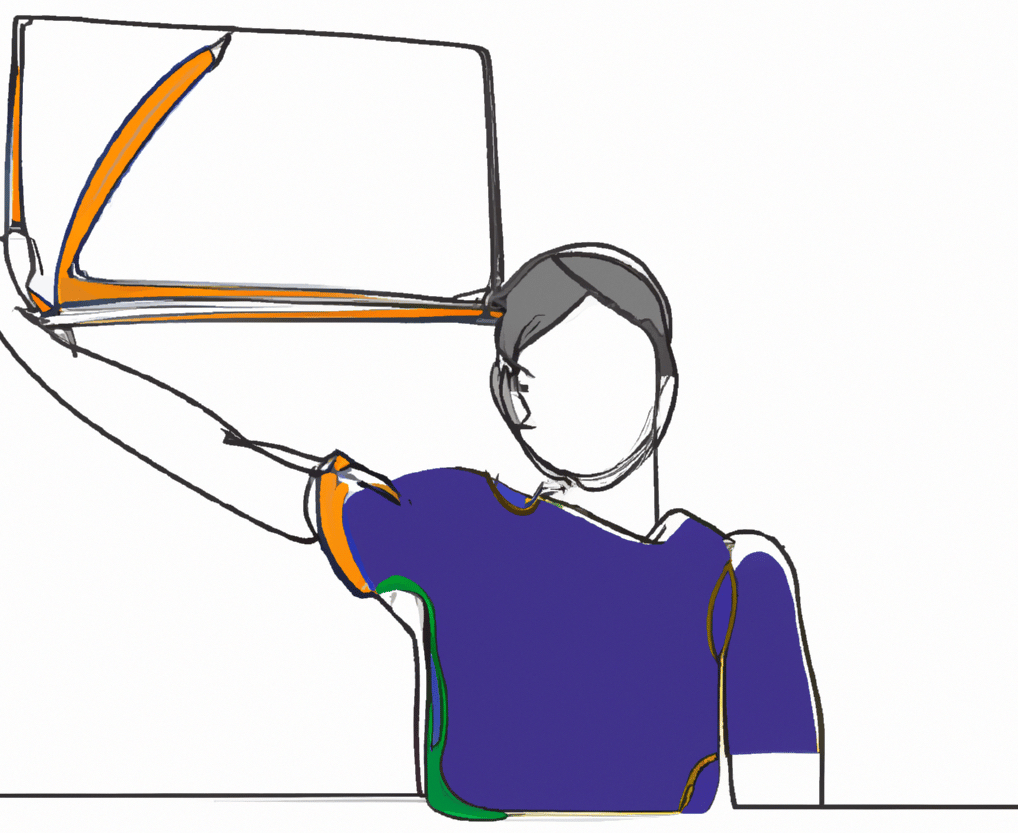
When Entrepreneur editor in chief Jason Feifer reached out to tell us that he was a fan of Every, we were honored. The magazine's mission to provide information thats help founders of all stripes build businesses dovetails with Every’s. So today, we’re delighted to publish this piece adapted from Jason’s weekly newsletter, One Thing Better, that provides one way to be more successful and satisfied at work, and build a career or company you love. Check out Nathan’s article, about how to write ideas that spread, on Entrepreneur’s site. —Kate
One of life’s biggest challenges is figuring out what you’re good at. But something else can be even harder—figuring out what you’re, frankly, not so good at. Coming to terms with your shortcomings, or the things you can’t quite excel at, is an incredibly valuable skill. That’s because you don’t have to be good at everything. In fact, in this era of professional specialization, it can be much more advantageous if you’re not. The best way you can become valuable is by not doing everything, but, instead, by doing something really well—and by knowing your own limitations.
DALL-E 2. Prompt: "One-line drawing of a person carrying many objects in their hands, but accidentally dropping some of them."
Imagine almost having everything
The year is 1999. Marc Randolph is the CEO and cofounder of a startup called Netflix, which is struggling to grow. He can’t figure out why.
One day, Marc hears a knock at his office door. It’s his fellow cofounder, Reed Hastings, who asks if he can show Marc a PowerPoint presentation.
Sure, Marc says. So Reed begins.
“At first I couldn’t quite understand what was happening,” Marc told me in an interview.
That’s because this wasn’t a typical PowerPoint presentation. It was kind of… about Marc. Reed made a presentation about Marc for Marc.
Eventually, Marc understood. In his presentation, Reed argued that he should replace Marc as the company’s CEO. I asked Marc how he processed this. “I remember sitting in the dark for quite a long time, while the office slowly shut down around me,” Marc told me. “I remember driving home and sitting out on my back porch with my wife, having a glass of wine and talking this through—and recognizing that, although it was incredibly painful and disappointing, Reed was right.”
But the reason why Reed was right was the revelation that altered the course of Marc’s life. Marc dreamed of being a big-time CEO—the guy who can make a company worth billions. But, Reed thought, he was not good at doing that. It’s why Netflix was stuck. That’s not to say Marc was useless, though. “What I truly loved was the early stages,” he told me. “And I'll be modest here—it's what I'm actually good at!”
In fact, this is exactly what he’d already done at Netflix. He turned an idea into a company. But he wasn’t the guy to grow it into a billion-dollar company—because that requires a separate skillset. Marc had a choice: he could either be an amazing version of his amazing self, or he could be a mediocre version of someone else. He chose to be amazing. He stepped down as CEO and went on to a career helping early-stage startups—which is to say, Marc Randolph now wakes up every day doing the thing he is best at.
You can do that, too. Marc’s story can be shortened like this: he discovered his limitations, and it helped him recognize his strength.
Three questions to ask yourself
Think about what you’re struggling with and ask yourself:
1. Why am I not excellent at this? I’m using “excellent” on purpose. NBA All-Star Chris Bosh once told me, “We don't work to be average.” It’s true—we work to be excellent. Because excellence gives us purpose and excitement. And excellence is worth sharing. Other people deserve our excellence. So, why are you not excellent? There are many reasonable answers to this question. Maybe you’re learning something new. Maybe you’re exploring. Or building. Excellence takes time, and it is hard, and that’s OK. If your new pursuit satisfies and excites you, then please, please—keep going. But if you don’t have a good answer to the question, then it’s time to ask another one:
2. Is it because I’m excellent at something else? This sounds so obvious. But in the moment, it doesn’t feel obvious. It sure didn’t to Marc. Maybe the answer is right in front of you. Maybe it is not. Either is fine.
I’ve gone through a version of this myself. For most of my career, I aspired to be a celebrated magazine features writer. These are the people who write regularly for the New Yorker or the New York Times Sunday Magazine—whose big, award-winning, investigative articles get turned into movies, and that used to be buzzed about by all the big-time journalists on Twitter.
But I never achieved that. Oh, I tried! I really tried. I wrote a lot of magazine features. And they were received… fine. But no awards. No movie deals. The New Yorker never reached out. And deep down, I understood: I’m perfectly good at this, but I’m not excellent. And that hurts.
Now, third question:
3. What would happen if I just did the thing I’m excellent at? Nobody ever said, "Shaq was a terrible basketball player because he couldn't shoot three-pointers." No. Shaq was amazing because he did a few things very, very well. So try this thought experiment. Let’s say you know what you’re excellent at. How much of your day is spent doing it? Twenty percent? Fifty percent, if you’re lucky? So what would it look like if you increased that? What if 80 percent of your day was spent on what you’re excellent at? I bet it sounds good. Now, how do you make that happen?
Maybe you make a major change. Maybe you just do your job differently. Maybe you start offloading work that takes you away from your excellence. Maybe you just start to see the pathway towards maximizing yourself.
DALL-E 2. Prompt: "One-line drawing of a person holding one large colorful object, very confidently."
Or maybe this isn’t possible right now. That’s also fine! Not all of us are Marc Randolph, who can casually step down as CEO of a company. But we can build a bridge there. We can work backwards, and think: to get there tomorrow, what needs to happen today? And what if you simply don’t know what you’re excellent at? Well, it’s time to think deeper.
Like I said: I am not an excellent investigative magazine features writer. But years ago, as I thought about it, I realized: I am excellent at something underneath that. I’m an excellent communicator. Magazine features were just one way I tried expressing that skill. So what else can I do with that?
I didn’t really know. But I thought: I’ll just keep trying, and trying… This gave me the freedom to explore the kind of writing I’m doing right now. It didn’t come naturally. I had a lot of imposter syndrome at first. I wondered: will anyone take me seriously? It also required an emotional break with the work I’d done before—to think, “I am no longer that thing I identified with, but I'm making room to become something better.”
But once I started writing in an earnest, direct, helpful way—tapping into a part of myself I’d never let fully bloom—people sent me long, personal notes about how it helped them. Nobody did that when I was just a magazine writer. And oh, it matters. It is an incredible gift, helping people like this. It feels, in a word, excellent.
I asked Marc Randolph if he has advice for others. “If people are looking for what success is,” he told me, “then spending your day doing the things you love: That's success.” Success is not doing everything, in other words. It’s doing something—something meaningful, something purposeful.
Jason Feifer is the editor in chief of Entrepreneur magazine and author of the newsletter One Thing Better, where a version of this piece was originally published.
The Only Subscription
You Need to
Stay at the
Edge of AI
The essential toolkit for those shaping the future
"This might be the best value you
can get from an AI subscription."
- Jay S.
Join 100,000+ leaders, builders, and innovators

Email address
Already have an account? Sign in
What is included in a subscription?
Daily insights from AI pioneers + early access to powerful AI tools








Comments
Don't have an account? Sign up!
I was just thinking about doing a post related to this. I recently gave away all my woodworking tools. I realized that I'm great at understanding tools, knowing how they work, knowing how to use them... but I am terrible at actually making things (and I'm not that interested in actually making things, tbh). So I realized I didn't need those tools anymore. They were just gathering dust. And I've stopped calling myself a "maker"; now I'm more of a "tool guy."
I'd done this at least once before as well. When I was in high school I strongly identified as a musician, having played guitar for more than two hours every day for many years. Then, during college, I started couple dancing, and at one point realized I had to choose - play music for dancing, or dance. I was much better at dancing, and I enjoyed it more - so the choice was obvious. I've hardly picked up my guitar since.
Now that I'm working on building my own business, I have to go through the exercise again. The problem now is that it's difficult to recognize what you're good at. When you're a good dancer all the ladies tell you so - that was easy. But when you can easily and naturally do something your colleagues or others struggle with, it's hard to recognize what's going on.
@nils_8591 I am so glad I read this. I bought a garage full of power tools about eight years ago when I pseudo-retired. I found that I didn't enjoy them. They scared me. I am an amateur woodworker, but I prefer hand tools. I sold them four years ago and felt relieved--but since then, I have thought that I should FEEL regret. I don't. I think your experience helped me know that I did the right thing. Let them go!
This is an amazing read... very insightful.. honestly I think I am still figuring out...
Quick question: how did you come over the imposter syndrome where you thought "will anyone take me seriously?"
@anil_6825
@anil_6825 You don't. It will always haunt you but you should not let that fear stop you from doing what you're doing.
When you focus on your work - and really focus on it - that voice will get quieter and quieter. It will be quiet but it will never be gone.
@rystraum honestly it has always stopped me from launching my youtube channel. I think its time to just ignore it for once and release the first video.
Good read. I put this in our newsletter this week.
Memo to myself: https://share.glasp.co/kei/?p=7ffcdf2b7e7a2471cb52
Simple yet Brilliant and most importantly evocative enough to make you think and trigger a step/action.
thank you - very much needed words
Finally an answer to how to make retirement meaningful and fun. I started writing a year ago to share some of the things I’d learned about over my career. I’ve only shared with friends but they have been so receptive. 40 years ago, I told my mentor I wanted to be a writer someday but living life got in the way. Time to make that dream the major focus. Thank you.
@carlbaker Are you writing about this? I'd follow you.
Painfully true and freeing. Perfect timing for some pivoting in process.
Excellent Article.
Thank You.